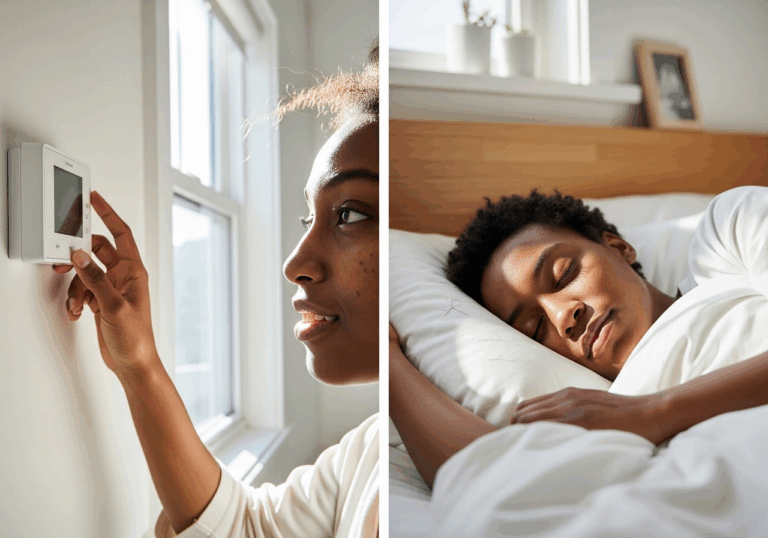Science-Backed Tips
Sleep Regularity Reduces Depression Symptoms
Maintain a consistent sleep schedule to lower depression scores by 5%.
📊 Did you know?
💡 Why It Matters
1️⃣
Improving sleep regularity can lead to a 5% reduction in depression scores, enhancing overall mental health.
2️⃣
Stabilizing circadian rhythms through consistent sleep patterns may improve daily functioning and quality of life.
3️⃣
Regular sleep timing can reduce the risk of developing chronic mood disorders.
✅ Try These Micro-Tips
🎯
Go to bed and wake up within a ±30-minute window each day.
🎯
Limit screen time at least 1 hour before bedtime to improve sleep quality.
🎯
Create a calming bedtime routine to signal your body it’s time to sleep.
🎯
Use a sleep diary to track your sleep patterns and make adjustments as needed.
📚 The study
Embracing these findings can empower individuals to take actionable steps towards better mental health, making sleep a priority in their wellness journey.
❓ Frequently Asked Questions ❓
Learn more
How does sleep regularity affect depression scores?
Maintaining a consistent sleep schedule can lead to a reduction in depression scores by approximately 5%. This improvement is attributed to enhanced sleep regularity and mood stabilization.
What is the recommended sleep window for better mental health?
It is recommended to go to bed and wake up within a ±30-minute window each day. This consistency helps stabilize circadian rhythms and improve overall mental well-being.
How does sleep regularity impact daily functioning?
Stabilizing circadian rhythms through regular sleep patterns can enhance daily functioning and quality of life. Improved sleep regularity is linked to better mood and mental health outcomes.
What role does bright light exposure play in sleep and depression?
Bright light exposure can help regulate sleep patterns, which may mediate its effects on depression. Consistent sleep timing, influenced by light exposure, contributes to lower depression scores.
How can I improve my sleep quality before bedtime?
Limiting screen time at least one hour before bedtime can significantly enhance sleep quality. Additionally, creating a calming bedtime routine signals to your body that it’s time to wind down.
What is the significance of the PHQ-9 in this study?
The PHQ-9 is a standardized tool used to assess depression severity. In this study, lower PHQ-9 scores were associated with improved sleep regularity, indicating better mental health.
Can tracking my sleep patterns help improve my sleep regularity?
Yes, using a sleep diary to track your sleep patterns can help identify areas for improvement. Making adjustments based on your observations can lead to better sleep regularity and mood stabilization.
Is there a risk of developing chronic mood disorders with irregular sleep?
Yes, irregular sleep patterns can increase the risk of developing chronic mood disorders. Consistent sleep timing is crucial for maintaining mental health and reducing depressive symptoms.
What is the sleep regularity index mentioned in the study?
The sleep regularity index measures the consistency of sleep timing over a period. An increase in this index is associated with lower depression scores, highlighting the importance of regular sleep habits.
How significant is the 5% reduction in depression scores?
A 5% reduction in depression scores can be clinically significant, indicating a meaningful improvement in mental health. This reduction emphasizes the importance of maintaining regular sleep patterns for overall well-being.





